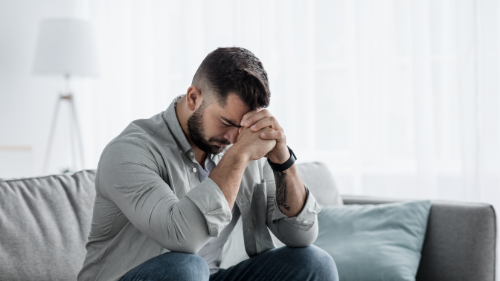Sunday Anxiety: More Common (and Serious) Than You Think
Sunday afternoon should be a time for rest, disconnection, and
gentle preparation for the week ahead. But for many people, it’s the opposite:
a moment of unease, pressure, racing thoughts, and a vague yet overwhelming
sense of discomfort. This is what’s known as Sunday anxiety—
and though it’s rarely discussed, it’s far more common— and more serious— than
we think.
It’s not just “laziness” about returning to work or routine. It’s a
deep emotional reaction that, if repeated regularly, can become a chronic symptom
of mental and emotional imbalance. It signals that something is off in your
weekly rhythm, your relationship with rest, or your life structure overall.
It’s not laziness— it’s
anticipatory emotional exhaustion
Sunday anxiety doesn’t appear out of nowhere. It’s often the result
of an emotional load that’s built up over the week and gone unprocessed. We
live in a culture that idolizes productivity and shames rest. So, many people
spend weekends feeling guilty for not “using their time wisely,” and Sundays
dreading the pressure that Monday will bring.
This anticipatory thinking activates the nervous system: you start
feeling restless, get a knot in your stomach, feel short of breath or
irritable. It might show up as insomnia, loss of appetite, or an unexplained
sadness. It’s not that you hate your job or your life— it’s that your body no
longer knows how to rest without feeling threatened.
It’s even worse when your so-called “days off” are filled with
chores, errands, catch-up tasks, and prepping for the next workday. If your
weekend is just an extension of your workweek in disguise, you’re not resting.
You’re continuing the cycle.
Recognizing Sunday anxiety is
the first step toward change
Sunday can become an emotional thermometer. It shows you how much space
you truly have for yourself, how much you’re living on autopilot, and how heavy
your routine has become. If every week ends in anxiety, it’s time to take a
closer look— not just at Sundays, but at your life as a whole.
In therapy, we explore the roots of this anticipatory anxiety, offer
emotional regulation tools, and— when needed— help you rethink your personal or
work life from a more humane perspective. Your body is speaking. And if Sunday
has become a day of dread, something deeper is asking to be healed.
You’re not alone. And it’s not normal to live just waiting for the
weekend to end— only to survive the week again.



